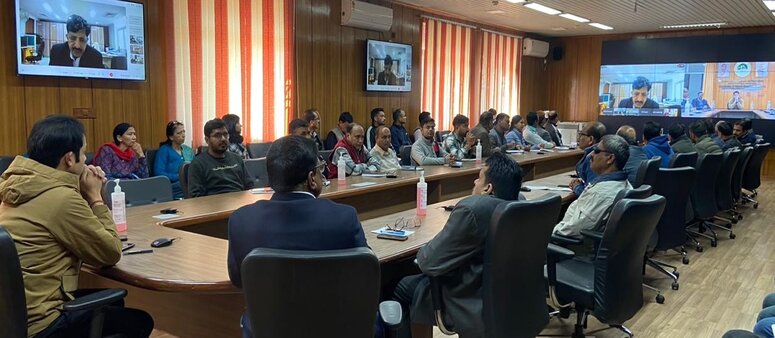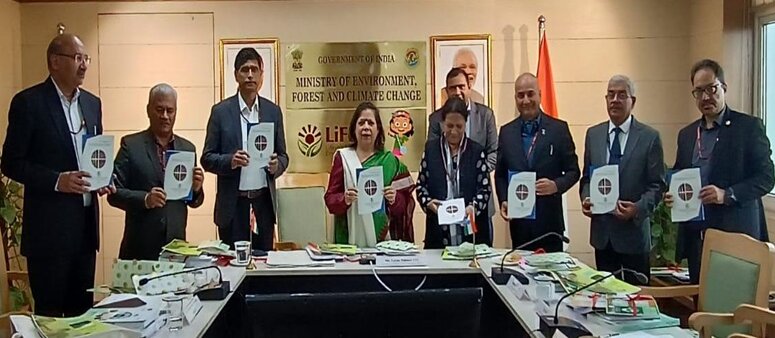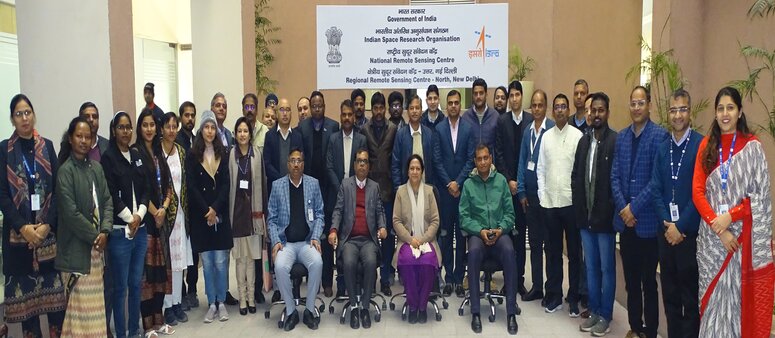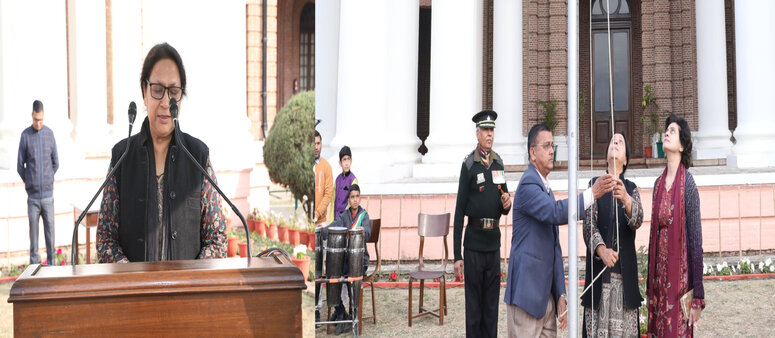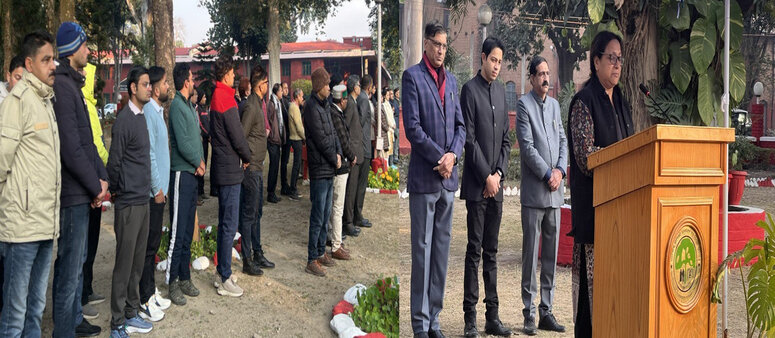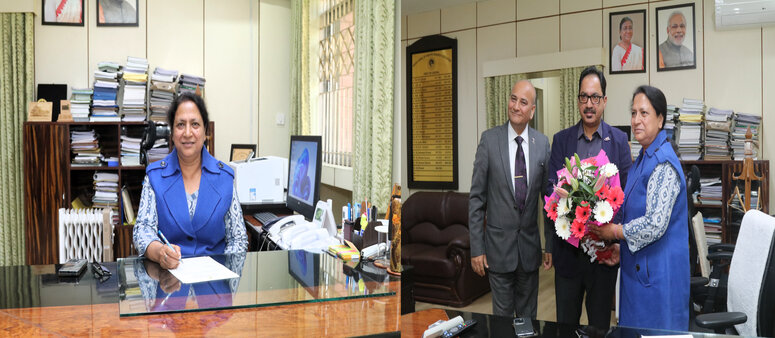Hon'ble Prime Minister of India
 Sh. Narendra Modi
Sh. Narendra Modi(Hon'ble Prime Minister)
Director General's Message

Smt. Kanchan Devi
Director General ICFRE
Forthcoming Events
 Application cum Brochure for the one week training in the month of december for international participants going to be organise by CoE-SLM in collaboration with the ICFRE-AFRI,Jodhpur updated: 11 September 2024
Application cum Brochure for the one week training in the month of december for international participants going to be organise by CoE-SLM in collaboration with the ICFRE-AFRI,Jodhpur updated: 11 September 2024
 ICFRE Training Calendar for the FY 2024-25 updated: 01 May 2024
ICFRE Training Calendar for the FY 2024-25 updated: 01 May 2024
 Short Term Training Course Calendar-2024 of ICFRE-FRI, Dehradun updated: 01 April 2024
Short Term Training Course Calendar-2024 of ICFRE-FRI, Dehradun updated: 01 April 2024
Bulletin Board 
 Order of termination of contract and blacklisting of firm M/S Vidya online services Pvt Ltd, Pune updated: 09 October 2024
Order of termination of contract and blacklisting of firm M/S Vidya online services Pvt Ltd, Pune updated: 09 October 2024
 150th ANNIVERSARY SPECIAL ISSUE ON “EVOLUTION OF FOREST MANAGEMENT IN INDIA” updated: 27 September 2024
150th ANNIVERSARY SPECIAL ISSUE ON “EVOLUTION OF FOREST MANAGEMENT IN INDIA” updated: 27 September 2024
 आगामी हिंदी दिवस पर माननीय मंत्री महोदय का संदेश updated: 13 September 2024
आगामी हिंदी दिवस पर माननीय मंत्री महोदय का संदेश updated: 13 September 2024
 Newsletter, Vol-II, Issue-I, (January-March, 2024), ICFRE-RFRI, Jorhat updated: 24 June 2024
Newsletter, Vol-II, Issue-I, (January-March, 2024), ICFRE-RFRI, Jorhat updated: 24 June 2024
 Symposium on World Day to Combat Desertification and Drought June 18, 2024 updated: 14 June 2024
Symposium on World Day to Combat Desertification and Drought June 18, 2024 updated: 14 June 2024
 Office Order related to technical staff of erstwhile IPIRTI updated: 05 June 2024
Office Order related to technical staff of erstwhile IPIRTI updated: 05 June 2024
 Short Term Training Course Calendar-2024 of ICFRE-FRI, Dehradun updated: 06 March 2024
Short Term Training Course Calendar-2024 of ICFRE-FRI, Dehradun updated: 06 March 2024
 Price list for newly developed variety of Neem seeds, Seedlings by scientist/ researchers of Forest Research Institute, Dehradun updated: 16 February 2024
Price list for newly developed variety of Neem seeds, Seedlings by scientist/ researchers of Forest Research Institute, Dehradun updated: 16 February 2024
Updates from ICFRE Institutes
 Organized two days training programme on Agroforestry models of Uttar Pradesh ERC: 18 October 2024
Organized two days training programme on Agroforestry models of Uttar Pradesh ERC: 18 October 2024
 Organized 70th Wild Life week at SHUATS, Prayagraj ERC: 18 October 2024
Organized 70th Wild Life week at SHUATS, Prayagraj ERC: 18 October 2024
 Report on Three Days Training Program (9 to 11 October, 2024) on “Nursery Techniques for Arid and Semiarid Tree Species” for others Stakeholders funded by MoEF&CC, Govt. of India AFRI: 18 October 2024
Report on Three Days Training Program (9 to 11 October, 2024) on “Nursery Techniques for Arid and Semiarid Tree Species” for others Stakeholders funded by MoEF&CC, Govt. of India AFRI: 18 October 2024
 One Day Training Programme On “Vigilance Related Awareness For Government Servants ICFRE-BRC: 17 October 2024
One Day Training Programme On “Vigilance Related Awareness For Government Servants ICFRE-BRC: 17 October 2024
 Report on Wild Life Week (2nd Oct to 8th Oct, 2024) programs organized by ICFRE-AFRI. AFRI: 17 October 2024
Report on Wild Life Week (2nd Oct to 8th Oct, 2024) programs organized by ICFRE-AFRI. AFRI: 17 October 2024
 Report on celebrations of Wildlife Week 2024 organised by ICFRE-IFGTB EIACP PC RP IFGTB: 17 October 2024
Report on celebrations of Wildlife Week 2024 organised by ICFRE-IFGTB EIACP PC RP IFGTB: 17 October 2024
 Training on Quality Planting Material Production in Nursery (QPM) IFGTB: 17 October 2024
Training on Quality Planting Material Production in Nursery (QPM) IFGTB: 17 October 2024
 MoU between ICFRE-Institute of Forest Productivity, Ranchi and Damodar Valley Corporation, Kolkata for implementation of project at Koderma Thermal Power Station, Koderma IFP: 17 October 2024
MoU between ICFRE-Institute of Forest Productivity, Ranchi and Damodar Valley Corporation, Kolkata for implementation of project at Koderma Thermal Power Station, Koderma IFP: 17 October 2024
 ICFRE-ERC, Prayagraj organized one day Rastriya vagnayik sangosthi on 27th September 2024 ERC: 11 October 2024
ICFRE-ERC, Prayagraj organized one day Rastriya vagnayik sangosthi on 27th September 2024 ERC: 11 October 2024
 Report on Establishment of "Matri Van" under EK PED MAA KE NAAM at ICFRE-IFB, Hyderabad on 14.09.2024. IFB: 11 October 2024
Report on Establishment of "Matri Van" under EK PED MAA KE NAAM at ICFRE-IFB, Hyderabad on 14.09.2024. IFB: 11 October 2024
 Report on the training program conducted by ICFRE-CEC, Visakhapatnam to the officers of Indian Forest Service from 17th to 19th September 2024 CEC: 11 October 2024
Report on the training program conducted by ICFRE-CEC, Visakhapatnam to the officers of Indian Forest Service from 17th to 19th September 2024 CEC: 11 October 2024
 A report of one day Training Program on Fodder Bank Management Silage making and Storage by ICFRE- HFRI Shimla. HFRI: 11 October 2024
A report of one day Training Program on Fodder Bank Management Silage making and Storage by ICFRE- HFRI Shimla. HFRI: 11 October 2024
 A Report of one day capacity building programme on Promoting Soil Test Based Nutrient Management Practices by ICFRE- HFRI Shimla HFRI: 11 October 2024
A Report of one day capacity building programme on Promoting Soil Test Based Nutrient Management Practices by ICFRE- HFRI Shimla HFRI: 11 October 2024
 Report on vigilance awareness week 2024 organised at RFRI, Jorhat RFRI : 08 October 2024
Report on vigilance awareness week 2024 organised at RFRI, Jorhat RFRI : 08 October 2024
 A report of MoEF&CC, New Delhi sponsored training programme organized by FTSL, S&FM Division, ICFRE-FRI on “Advance in seed and nursery Technology” from 24th to 26th Sept 2024 FRI: 04 October 2024
A report of MoEF&CC, New Delhi sponsored training programme organized by FTSL, S&FM Division, ICFRE-FRI on “Advance in seed and nursery Technology” from 24th to 26th Sept 2024 FRI: 04 October 2024
ICFRE Technologies
Tree PALH is a biopesticide product which has been developed as an alternative to chemical pesticides for the management of insect pests of forestry importance. Use of Hydnocarpic acid as biopesticide is first of its kind and combination with neem oil and essential oil of Lantana is a new approach. Biopesticides
Biopesticides
“Tree Rich Biobooster” is a comprehensive potting mixture provides requisite nutrients and protects plants from pest and diseases. It is made from coconut fiber waste duly decomposed and enriched with all nutrients through various beneficial microbes. Tree Rich Biobooster- An alternate potting mixture for plant production.
Tree Rich Biobooster- An alternate potting mixture for plant production.
ArborEasy® DNA isolation kit is a spin column based genomic DNA isolation kit. ArborEasy® is a registered trademark. The isolation Kit provides an indigenous, nonbio-hazardous, low cost pin column based system for isolation of plant genomic DNA from wide range of tissue types, specifically tree tissues.  ArborEasyTM DNA Isolation Kit
ArborEasyTM DNA Isolation Kit
Institute of Forest Genetics and Tree Breeding (IFGTB), is working on genetic improvement of Eucalyptus, Casuarina, Acacias and fast growing native tree species. This targeted research is carried out in close collaboration with the Paper industries and farmers to meet the raw material demand and increase the farm income.  Commercialization of Clones of Casuarinas and Eucalyptus
Commercialization of Clones of Casuarinas and Eucalyptus
Commiphora wightii (Arn.) Bhandari, commonly known as guggal, is a medicinally important desert species of the family burseraceae. It is a well known for its valuable active principle found in its oleo-gum-resin (guggulsterone E and Z), which are used in drugs preparation for lowering the cholesterol level in human body. Conservation and Species Restoration of Critically Endangered Medicinal Plant
Conservation and Species Restoration of Critically Endangered Medicinal Plant
Fresh eggs of rice moth, Corcyra cephalonica (Stainton) (Lepidptera : Pyralidae) were pasted on paper cards and hanged in teak forests for 2-3 days during last week of June in Udaipur (compartment No. 298 RF), Kalpi Forest Range, Mandla Forest Division, MP.  TFRI Tricho cards
TFRI Tricho cards
Teak (Tectona grandis) is one of the major forest timber tree species in central Indian states of Madhya Pradesh, Chhattisgarh, Maharashtra and Orissa. In central India, the preferred planting material is root-shoot rather than teak seedlings grown in root trainers.  Management of white grubs in teak nurseries
Management of white grubs in teak nurseries
Bio-fertilizers or microbial inoculants are preparations containing live or latent cells of efficient strains of nitrogen fixing, mineral solubilizing, or cellulolytic microbes used for application to seed, soil or composting areas to augment the extent of availability of nutrients to plants. Biofertilizer has been extensively applied and accepted worldwide in agricultural crops, however, its application in forest tree species remains restricted.  Production and distribution of biofertilizers of microbial origin
Production and distribution of biofertilizers of microbial origin
Juniperus polycarpos C. Koch is an important indigenous conifer of North-Western Himalayan Region, commonly known as “Himalayan Pencil Cedar”. The seeds of this species have dormancy which affects its germination. Technology for breaking seed dormancy has been developed at HFRI during last 5 years. Seed Technology of Juniperus polycarpos (Himalayan Pencil Cedar)
Seed Technology of Juniperus polycarpos (Himalayan Pencil Cedar)
Picrorhiza kurrooa, Royle ex Benth. commonly known as Kutki is an important temperate medicinal plant found in western Himalayas, which has a great potential for commercial cultivation in higher temperate regions (above 2700 mts.). Macro-proliferation technique for Kutki Multiplication
Macro-proliferation technique for Kutki Multiplication
Valeriana jatamansi, Jones commonly known as Mushakbala is an important temperate medicinal plant species found in western Himalayas and possesses great potential for commercial cultivation. The species can be easily grown by seeds but the vegetative propagation has scientific advantage over sexual propagation Macro-proliferation technique for Mushakbala Multiplication
Macro-proliferation technique for Mushakbala Multiplication
Deodar (Cedrus deodara), one of the most valuable and dominant conifer species of the North-western Himalaya at certain intervals gets affected by a defoliator, Ectropis deodarae Prout, (Lepidoptera: Geometridae). This key pest seriously affects the younger crops in deodar forests. Integrated Pest Management of Deodar Defoliator (Ectropis deodarae Prout)
Integrated Pest Management of Deodar Defoliator (Ectropis deodarae Prout)
The interspaces in the orchards of high hill temperate region can be better utilized and economic benefit from the orchards can be enhanced by intercropping selected commercially important medicinal plants. Intercropping of temperate medicinal plants with horticultural plantation
Intercropping of temperate medicinal plants with horticultural plantation




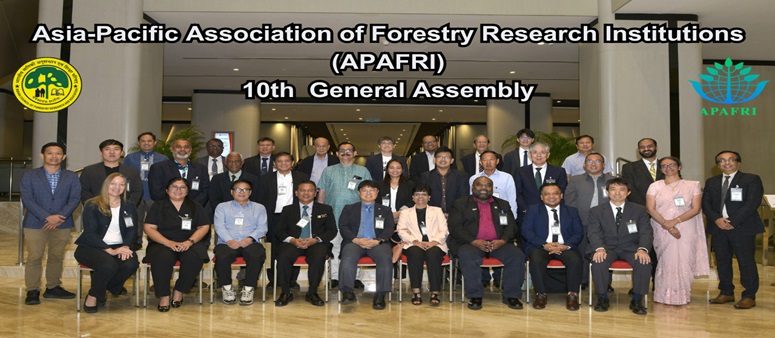
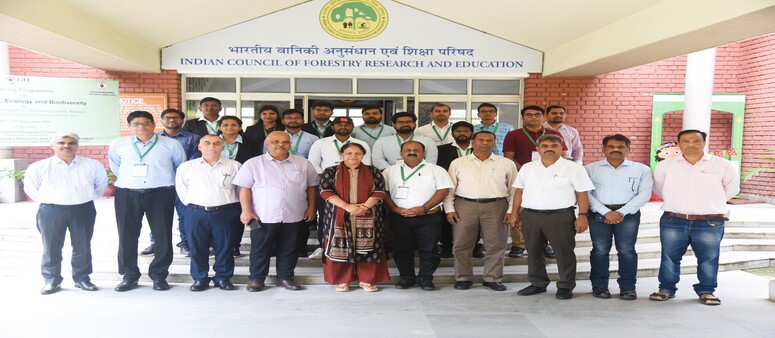
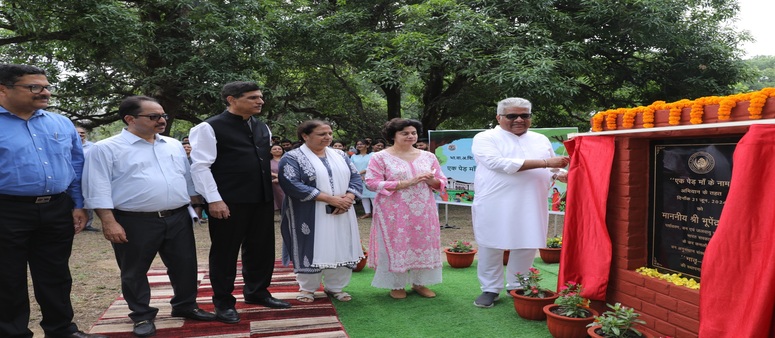
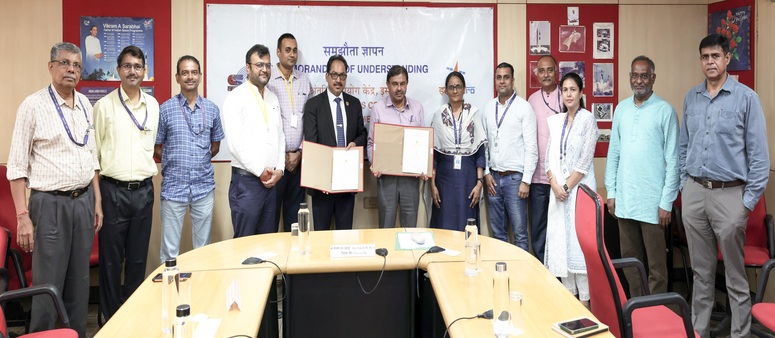

 View Photo Gallery
View Photo Gallery
 View Report
View Report